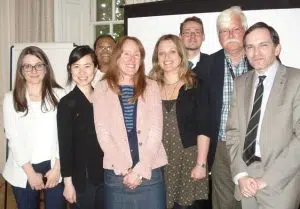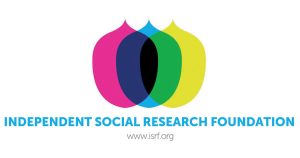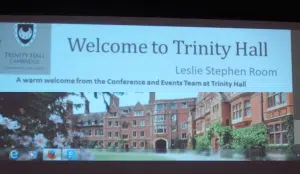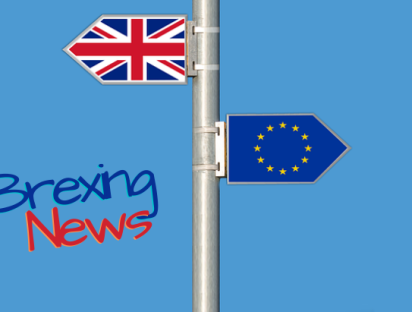The 8th ESSCA Space Policy Workshop was held under the topic “A European Space Policy – past consolidation, present challenges and future perspectives” on 20-21 April 2017 at Trinity Hall, University of Cambridge.
With great sadness we had to commence the workshop by the announcement that Fabian Kienzler (MA) had passed away only a few days earlier. He had been a regular contributor to the work of the standing research group on European Space Policy and had been looking forward to giving a paper at this workshop. A minute of silence was held in his honour. He will be thoroughly missed by all his colleagues.
Professor Thomas Hoerber, who convened the workshop, continued by thanking the generous sponsors of the standing research group for their continued support since its foundation in 2009, particularly the host institution, ESSCA School of Management; as well as the Independent Social Research Foundation (ISRF) which has generously funded its work for the past year; but also the University Association for Contemporary European Studies (UACES) and the European Space Agency (ESA) which had both provided generous funding in the past.
The publication activity of the ESSCA standing research group on European Space Policy has been prolific over the last years. Two books European Space Policy, edited by Paul Stephenson and Thomas Hoerber (Routledge, 2016) and Theorizing European Space Policy, edited by Emmanuel Sigalas and Thomas Hoerber (Lexington, 2016) have come out. A special issue with Space Policy on the ‘Popularisation of Space’, edited by Harald Koepping Athanasopoulos and Thomas Hoerber, is forthcoming in 2017. Finally, another edited book featuring principally the papers of this workshop was accepted by Routledge and should be published in 2018.

On the second day, the discussion continued with contributions by Ntorina Antoni, MA, Dr Christina Giannopapa, Maarten Andriansen, MA, from the ESA, on ‘Space security in the era of Space 4.0’. Dr Nikita S.W. Chiu, from the University of Cambridge, talked about ‘Promoting International Co-operation in the Age of Global Space Governance – A Study on On-Orbit Servicing Operations’. Prof. Thomas Hoerber, from ESSCA, exposed a first draft paper on ‘Sustainability in Space’.
In the afternoon, future perspectives of European space policy were considered in the papers by Dr Sarah Lieberman, from Canterbury Christ Church University. She analysed ‘Trump, Autonomy and the future of the European Space Policy’; Fabian Kienzler, MA, from Passau University, could sadly not show the results of his PhD thesis in ‘Europeanization of Space Policy’; Ntorina Antoni, MA, from ESA exposed the ‘ESA-EU joint statement on the European strategy’; and finally Dr Lorna Ryan, from London City University, showed the perspectives of a ‘Space Strategy for Europe’.

With acknowledgement of the support by the ISRF.
We concluded with a resumé of the workshop by Prof. Thomas Hoerber, finishing with the publication perspective in the edited volume with Routledge, co-edited by Sarah Lieberman and Thomas Hoerber, and highly appreciated contributions to it from Frans van der Dunk, Harvey and Susan Perlman Alumni / Othmer Professor of Space Law at the University of Nebraska-Lincoln’s LL.M. Programme on Space and Telecommunication Law, and potentially even by Stephen Hawking.





